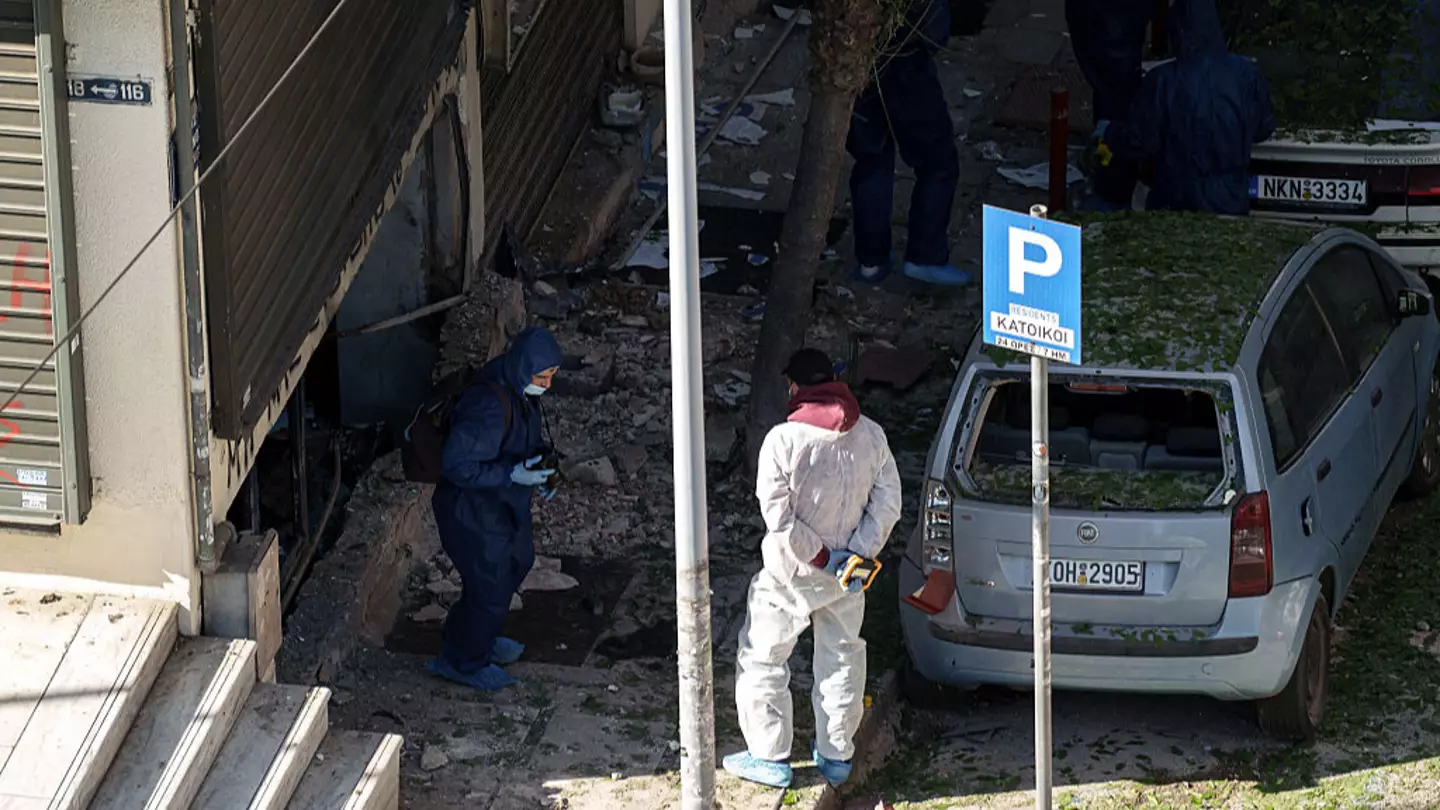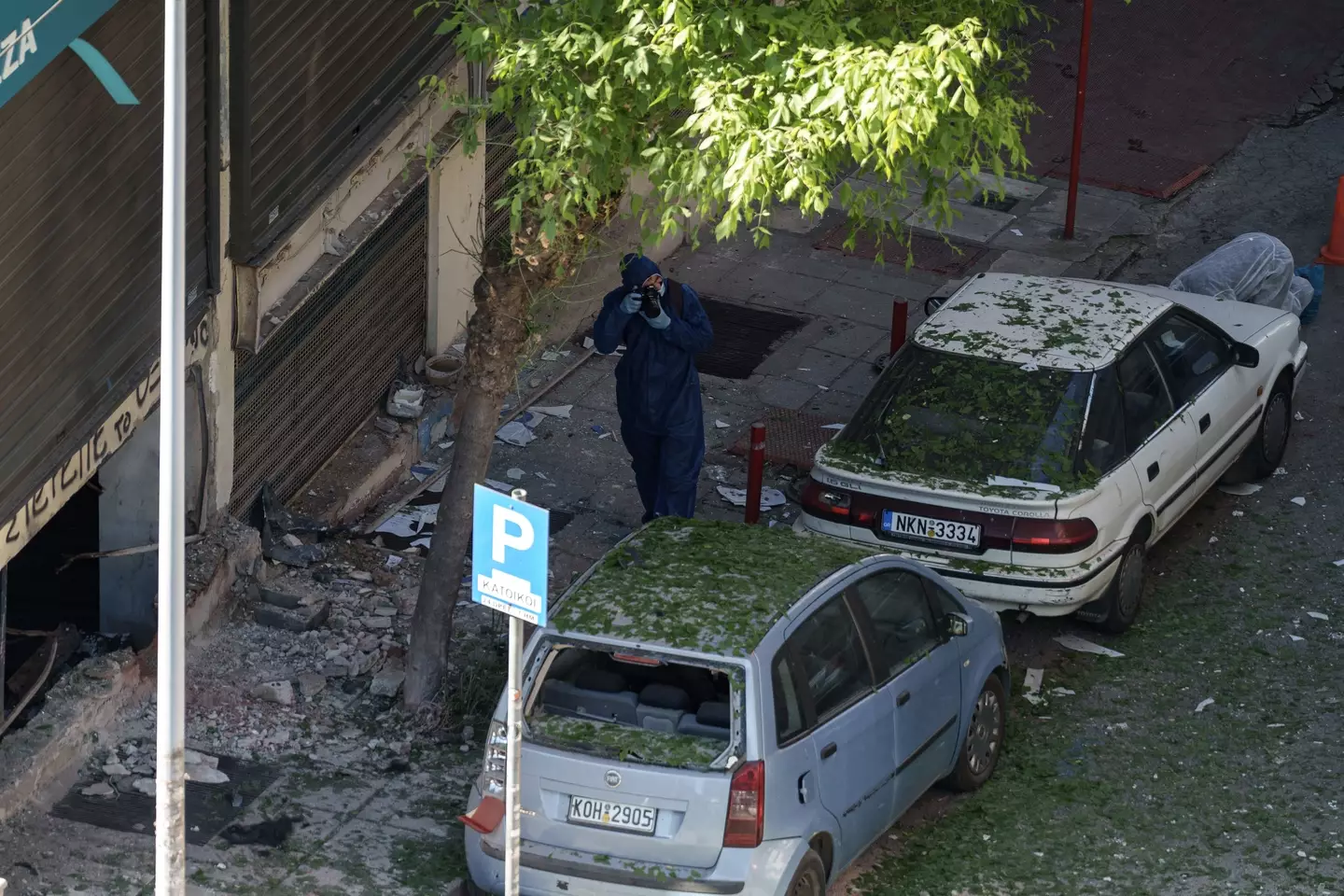
Police have released an update about the 38-year-old woman who died in Greece after a bomb she was carrying exploded in her hands yesterday (3 May).
The woman was killed in an explosion in the Greek city of Thessaloniki, with police saying that in the moments before her death it seemed as though she was attempting to plant a bomb on a bank's cash machine when it detonated in her hands.
A number of vehicles and buildings in the area were damaged in the blast, and police said that the woman was known to them due to an association with previous robberies.
Now in an update Greek police said that the 38-year-old woman had drug and prostitution charges on her criminal record in addition to the past robberies and thefts she was known to have participated in.
Advert
Authorities are still looking into the possibility that she had links to extremism.
.jpg)
"It appears that she was carrying an explosive device and planned to plant it a bank's ATM," police had said in a statement after the explosion which occurred at around 5am yesterday morning.
"Something went wrong and it exploded in her hands."
While officers have released more information about the 38-year-old woman's criminal record and past convictions she has not been publicly identified.
Responding to the explosion in Thessaloniki, the UK's Foreign Office updated their travel advice for those considering a trip to Greece to warn Brits about the potential dangers and said that anyone in the area should 'take care and follow the advice of the local authorities'.
The Foreign Office warns visitors to Greece that 'terrorists are likely to try to carry out attacks in Greece', and warned that attacks of this nature 'could be indiscriminate, including in places visited by foreign nationals'.

"There have been several attacks involving explosives and automatic weapons against Greek institutions, shopping malls, banks, media offices, diplomatic premises and the police," they say.
Last October, a man living in Athens was killed when the bomb he was assembling there detonated, and a woman in the home was also severely injured.
A bomb also exploded in Athens in February near the offices of Hellenic Train, Greece’s main railway services operator, there were no casualties as an anonymous call to local media had been placed to warn about the bomb 40 minutes before detonation, which meant police could cordon off the area.
In April, a group calling themselves Revolutionary Class Struggle claimed responsibility for the bomb.
Topics: Crime, World News, Terrorism